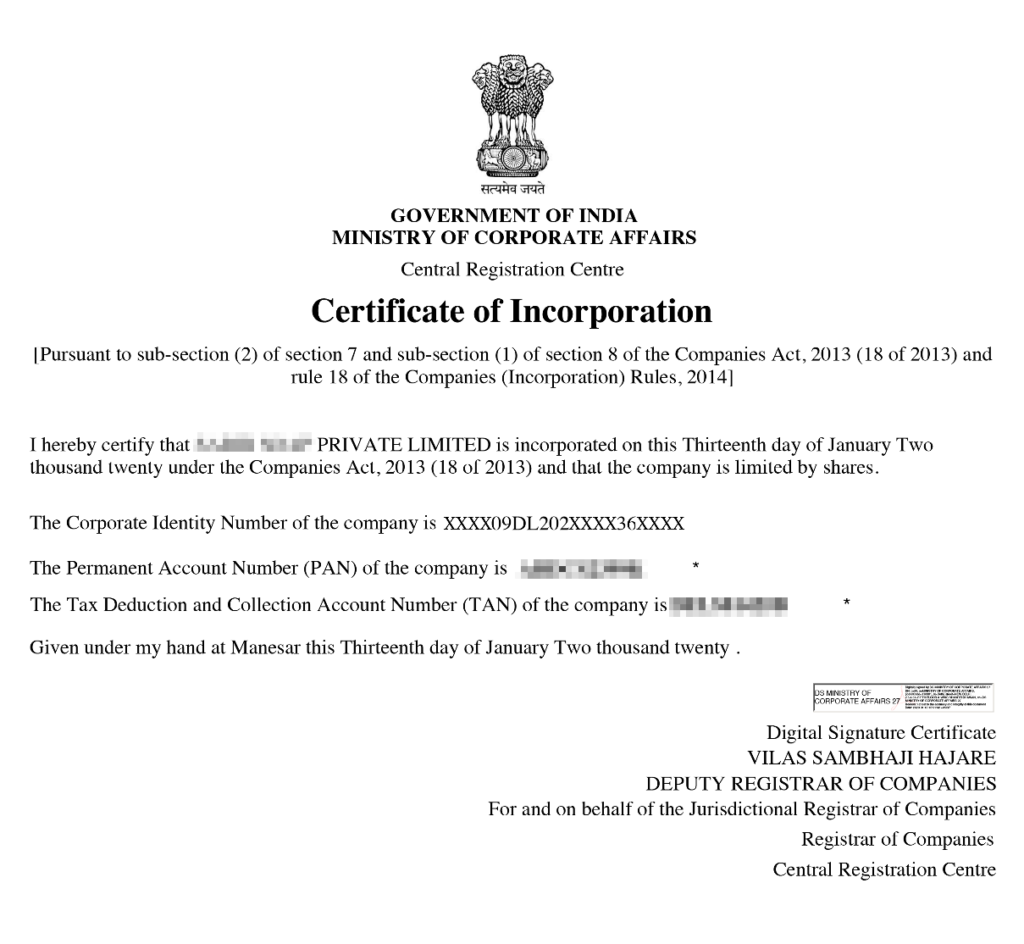Partnership Firm Registration Starts from ₹9,999 Only!
A partnership firm is a business structure in which two or more individuals manage and operate a business in accordance with the terms and objectives set out in a Partnership Deed.
- No Hidden Charges
- Lowest Price Guarantee
- Quick and Hassle-Free Process Free Expert
- Assistance for Lifetime
Get Expert Consultation
How to Register a Partnership Firm - Step-by-Step Guide
Registering a partnership firm in India involves several key steps to ensure legal compliance and establish a transparent business structure. The process begins with selecting an appropriate name for the partnership, ensuring it complies with the rules set by the Registrar of Companies (RoC). Once a suitable name is chosen, partners must draft a Partnership Deed, a crucial document outlining the terms and conditions of the partnership, including profit-sharing ratios, capital contributions, and other operational aspects.
After drafting the Partnership Deed, partners need to apply for a PAN (Permanent Account Number) and TAN (Tax Deduction and Collection Account Number) for the partnership firm. These identification numbers are essential for tax-related purposes and financial transactions. Subsequently, partners should submit the application for registration with the Registrar of Firms in the prescribed format. The application must include details such as the name of the firm, location, names of partners, and the duration of the partnership, among other information. Once the Registrar reviews and approves the application, the partnership firm is officially registered, and a Certificate of Registration is issued.
To complete the registration process, partners should obtain a bank account in the name of the partnership firm, using the Certificate of Registration. Additionally, it is advisable to apply for other necessary licenses and permits specific to the nature of the business, ensuring full compliance with local regulations. Regular compliance with tax obligations and annual filing of returns will contribute to the smooth and lawful operation of the partnership firm in India.


What is a Partnership Firm?
Forming a partnership firm is a widely accepted and significant method of business organization in India. A partnership firm should have atleast two partners. Individuals form such firms when they work together to launch a business and divide its profits among themselves according to a predetermined ratio. A partnership business can cover a wide range of trades, professions, and occupations.
What Are the Benefits of Partnership Firm Registration?
1. Legal Recognition: Registration provides legal recognition to the partnership firm, establishing it as a distinct legal entity with the ability to own property and enter into contracts.
2.Proof of Existence: The Certificate of Registration serves as concrete evidence of the partnership firm’s existence, making it easier to engage in legal transactions and partnerships.
3. Dispute Resolution: In case of disputes among partners, a registered partnership firm can access legal mechanisms for dispute resolution, protecting the interests of all parties involved.
4. Access to Banking Services: A registered partnership firm can open a bank account in its name, facilitating smoother financial transactions and accounting practices.
5.Credibility and Trust: Registration enhances the credibility and trustworthiness of the partnership firm in the eyes of clients, suppliers, and other business associates.
6. Tax Benefits: Partnerships enjoy certain tax benefits, and registration is a prerequisite for availing these benefits, such as deductions and exemptions.
7.Better Market Opportunities: Registered firms often have more opportunities in the market, as many businesses prefer dealing with legally recognized entities.
8. Easy Transfer of Ownership: Registered partnership firms can easily transfer ownership through the admission or retirement of partners, ensuring business continuity.
9. Government Contracts: Registration opens avenues for participating in government tenders and contracts, as many require businesses to be legally registered.
10.Access to Legal Remedies: Registered firms have access to legal remedies in case of infringement, allowing them to protect their intellectual property and business interests effectively.
Minimum requirements for Partnership registration
As per the Companies Act 2013, there are minimum requirements that need to be met for company incorporation online.

What are the Eligibility Criteria for Registering partnership firm India?
In India, the registration of a partnership firm is governed by the Indian Partnership Act, 1932. While there are no strict eligibility criteria for forming a partnership, there are certain conditions and requirements that partners must meet for the registration process:
1. Number of Partners:
– A partnership firm in India can be formed with a minimum of two individuals. The maximum number of partners in a partnership firm is generally limited to 20, except in the case of a banking business where the maximum limit is 10.
2. Partnership Deed:
– The partners must agree to form a partnership and execute a Partnership Deed. This document should contain the terms and conditions of the partnership, including profit-sharing ratios, capital contributions, and other relevant clauses.
3. Selection of Name:
– The partners need to choose a name for the partnership firm. The selected name should not infringe on existing trademarks, and it should comply with the rules set by the Registrar of Companies.
4 .Address Proof:
– Partners are required to provide address proof, such as Aadhar card, passport, or voter ID, for the registration process.
5. PAN and TAN:
– The partnership firm needs to obtain a Permanent Account Number (PAN) and Tax Deduction and Collection Account Number (TAN) for tax purposes.
6.Registration Application:
– Partners must submit an application for registration to the Registrar of Firms. The application should include details such as the name of the firm, location, names of partners, and the duration of the partnership.
7.Payment of Fees:
– The partners need to pay the prescribed fees for registration as specified by the authorities.
Documents Required for an Partnership Firm Registration
To register a partnership firm in India, you need to provide several documents.
1.Application for Registration: A duly filled application for registration of the partnership firm. This application should contain details such as the name of the firm, location, names and addresses of the partners, and the duration of the partnership.
2 Partnership Deed: A Partnership Deed is a crucial document that outlines the terms and conditions of the partnership, including the names of partners, profit-sharing ratios, capital contributions, and other operational details. This document needs to be executed on non-judicial stamp paper.
3.Address Proof: Address proof of the principal place of business, such as a utility bill or rental agreement.
4. Identity Proof: Identity proof of the partners, which may include Aadhar card, passport, voter ID, or driver’s license.
5. Photographs: Passport-sized photographs of all the partners.
6. Name Approval Certificate: If you have applied for and obtained approval for a specific name for the partnership, the Name Approval Certificate needs to be submitted.
7. Affidavit: An affidavit signed by all the partners declaring their intention to form a partnership and agreeing to be partners.
8. Ownership Proof of the Property: If the partnership firm owns property, ownership proof needs to be provided.
9. PAN and TAN: Permanent Account Number (PAN) and Tax Deduction and Collection Account Number (TAN) need to be obtained for the partnership firm.
10. Consent of Partners: A consent letter signed by all partners stating their intention to become partners in the firm.
11. Registration Fee: The prescribed registration fee needs to be paid along with the submission of documents.

Procedure for Registering Partnership Firm
Registering a partnership firm in India involves a systematic procedure. Here is a general overview of the steps involved:
1. Choose a Suitable Name: Select a unique and legally acceptable name for the partnership firm. Ensure that the chosen name complies with the rules set by the Registrar of Companies.
2. Draft a Partnership Deed: Prepare a Partnership Deed outlining the terms and conditions of the partnership. Include details such as the names of partners, profit-sharing ratios, capital contributions, and other operational aspects.
3.Apply for PAN and TAN: Obtain a Permanent Account Number (PAN) and Tax Deduction and Collection Account Number (TAN) for the partnership firm.
4. Prepare Application for Registration: Draft an application for registration on a non-judicial stamp paper. Include information such as the name and address of the firm, names and addresses of partners, and the duration of the partnership.
5.Visit the Registrar of Firms: Submit the application along with the Partnership Deed and required documents to the Registrar of Firms in the jurisdiction where the firm is situated.
6. Verification and Approval: The Registrar will verify the documents and, if satisfied, register the partnership. This may involve a thorough examination of the application and supporting documents.
7. Certificate of Registration: Once approved, the Registrar will issue a Certificate of Registration. This certificate serves as proof of the existence of the partnership firm.
8. Obtain PAN and TAN: With the Certificate of Registration, apply for PAN and TAN for the partnership firm from the respective authorities.
9. Open Bank Account: Use the Certificate of Registration and other necessary documents to open a bank account in the name of the partnership firm.
10. Compliance with Other Laws: Ensure compliance with other applicable laws and regulations, including obtaining any required licenses or permits for the specific business activity.
11. Annual Compliance: Partnerships are required to file annual returns and maintain proper accounting records. Ensure timely compliance with tax obligations and other regulatory requirements.
